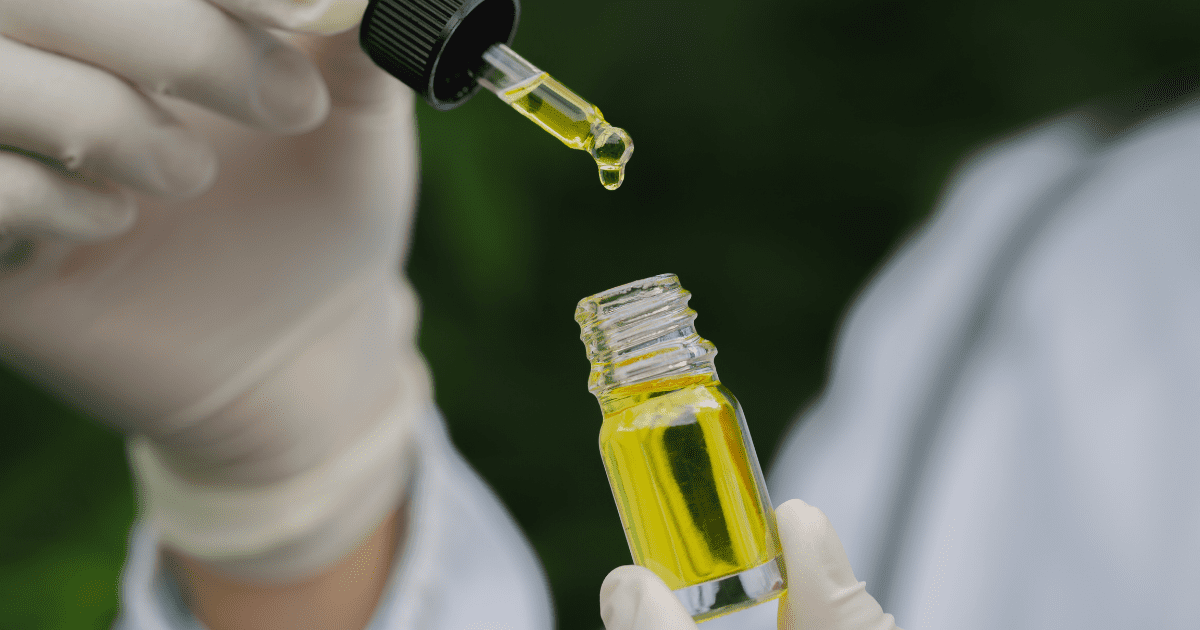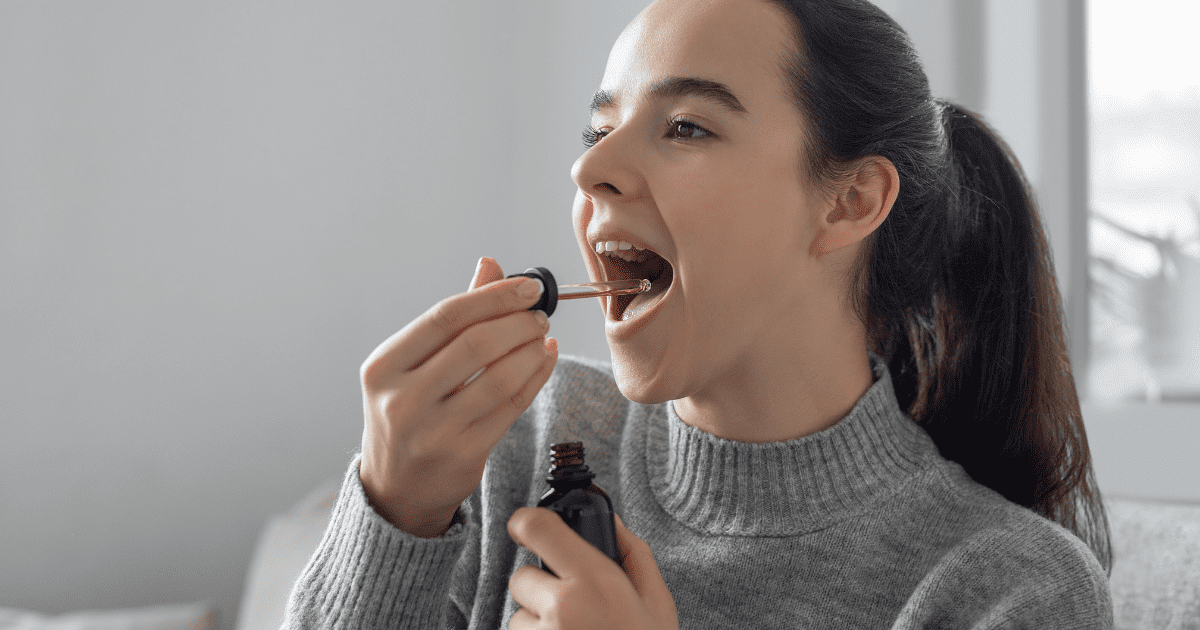In recent years, there has been a growing interest in the potential benefits of CBD (cannabidiol) oil for various health concerns, particularly anxiety. CBD, a non-psychoactive compound found in the cannabis plant, has garnered attention for its promising therapeutic properties without inducing the “high” associated with its counterpart, THC. As anxiety disorders continue to impact millions of individuals worldwide, the search for natural and effective remedies intensifies.
This article explores the potential of CBD oil for anxiety relief, shedding light on its mechanisms, benefits, and considerations to help those seeking a natural approach to managing anxiety symptoms.
What is CBD Oil?
CBD oil, short for cannabidiol oil, is a natural extract derived from the cannabis plant. It is one of over 100 chemical compounds known as cannabinoids found in cannabis. Unlike THC (tetrahydrocannabinol), another well-known cannabinoid, CBD does not have psychoactive effects, meaning it does not produce the “high” commonly associated with marijuana use.
CBD oil is typically obtained from industrial hemp plants, which are a variety of cannabis plants with low THC content. The extraction process involves separating CBD from the other compounds present in the plant, resulting in a concentrated oil.
The popularity of CBD oil has surged in recent years due to its potential therapeutic properties. It is believed to interact with the body’s endocannabinoid system, a complex network of receptors found throughout the body. This interaction may influence various physiological processes, including pain perception, mood regulation, immune function, and more.
CBD oil is available in various forms, such as tinctures, capsules, edibles, creams, and vape oils. It is used for a wide range of health conditions, including pain management, anxiety relief, sleep improvement, and as a supplement for overall well-being. However, it’s essential to note that research on CBD is still ongoing, and while promising, its potential benefits and safety need further investigation and understanding. As with any health supplement, it’s advisable to consult with a healthcare professional before incorporating CBD oil into your wellness routine.

What is Anxiety?
Anxiety is a natural and normal emotional response that everyone experiences from time to time. It is the body’s way of reacting to stress or potential threats. In many situations, anxiety can be beneficial as it heightens our alertness and prepares us to deal with challenging or dangerous circumstances. However, when anxiety becomes excessive, prolonged, or uncontrollable, it can evolve into an anxiety disorder, which can significantly impact a person’s daily life and well-being.
Anxiety disorders are a group of mental health conditions characterized by excessive worry, fear, or nervousness that goes beyond what is considered typical for a given situation.
Common symptoms of anxiety disorders may include:
- Persistent and excessive worry or fear about various aspects of life, such as work, school, health, or relationships.
- Restlessness or feeling on edge.
- Fatigue or difficulty sleeping.
- Difficulty concentrating or mind going blank.
- Muscle tension or trembling.
- Rapid heartbeat or palpitations.
- Irritability.
There are different types of anxiety disorders, including generalized anxiety disorder (GAD), social anxiety disorder, panic disorder, specific phobias, and more. Each type of anxiety disorder can present with unique symptoms and challenges.
Anxiety disorders can be caused by a combination of genetic, environmental, and psychological factors. Traumatic experiences, family history of anxiety or other mental health issues, and certain personality traits can contribute to the development of anxiety disorders.
Treatment for anxiety may involve a combination of therapies, such as cognitive-behavioural therapy (CBT), medication, relaxation techniques, and lifestyle changes. In recent years, CBD oil has gained attention as a potential natural remedy for anxiety, but it’s important to note that more research is needed to fully understand its effectiveness and safety for this specific use. If you or someone you know is experiencing severe or persistent anxiety symptoms, it is essential to seek professional help from a qualified mental health professional.
How Does CBD Oil Work?
CBD oil interacts with the body’s endocannabinoid system (ECS), a complex network of receptors, endocannabinoids (naturally occurring cannabinoids produced by the body), and enzymes. The ECS plays a crucial role in regulating various physiological processes, including pain perception, mood, immune function, sleep, and more. CBD is believed to influence the ECS and other neurotransmitter systems, leading to potential therapeutic effects.
The primary receptors involved in the ECS are known as CB1 and CB2 receptors. CB1 receptors are mainly found in the central nervous system, including the brain, while CB2 receptors are predominantly located in the peripheral nervous system and immune cells.
CBD does not directly bind to CB1 or CB2 receptors as THC does. Instead, it appears to interact indirectly with these receptors and other targets within the ECS. CBD is thought to enhance the body’s natural production of endocannabinoids, allowing them to have a more prolonged effect on the receptors.
One of the key mechanisms of CBD’s action is its ability to inhibit the enzyme FAAH (fatty acid amide hydrolase), which is responsible for breaking down anandamide, a prominent endocannabinoid that binds to CB1 receptors. By inhibiting FAAH, CBD can increase anandamide levels, potentially contributing to its therapeutic effects on mood and pain perception.
CBD also interacts with other receptors and ion channels in the body, such as serotonin receptors (5-HT1A), vanilloid receptors (TRPV1), and adenosine receptors, which may play a role in its anxiolytic (anxiety-reducing) and analgesic (pain-relieving) properties.
It’s important to note that while there is growing evidence supporting the potential benefits of CBD oil, research is still in its early stages, and much remains to be understood about its mechanisms of action and its effects on various health conditions. Additionally, individual responses to CBD can vary, and it’s advisable to consult with a healthcare professional before using CBD oil, especially if you have any underlying health conditions or are taking other medications.
How Can CBD Oil Help With Anxiety?
CBD oil has garnered significant interest for its potential to help with anxiety. While more research is needed to fully understand its effects, some studies and anecdotal evidence suggest that CBD may have anxiolytic properties, meaning it may help reduce anxiety and promote a sense of calmness.
Here are some ways in which CBD oil might potentially help with anxiety:
- Interaction with Serotonin Receptors: CBD is believed to interact with serotonin receptors (5-HT1A) in the brain. Serotonin is a neurotransmitter that plays a key role in regulating mood and emotions. By modulating serotonin receptor activity, CBD may promote feelings of relaxation and well-being.
- Stress Response: CBD may influence the body’s response to stress. It has been suggested that CBD may reduce the release of cortisol, the “stress hormone,” which is associated with the body’s fight-or-flight response. By modulating cortisol levels, CBD may help manage stress and its impact on anxiety.
- Neural Regeneration: Some studies suggest that CBD may promote neurogenesis, the growth of new neurons in the brain. This process may have positive effects on brain health and may be relevant to anxiety disorders, as certain brain regions involved in anxiety regulation could benefit from neurogenesis.
- Sleep Improvement: Anxiety often goes hand in hand with sleep disturbances. CBD may help improve sleep quality and address insomnia, which can indirectly alleviate anxiety symptoms by promoting better rest and relaxation.
- GABAergic System: CBD has been found to interact with GABA receptors in the brain. GABA is a neurotransmitter that has inhibitory effects, meaning it can reduce neural activity and induce relaxation. By influencing GABA receptors, CBD may have a calming effect on the nervous system.
It’s important to note that while these potential mechanisms suggest CBD’s anxiolytic effects, individual responses to CBD may vary. Some people may find significant relief from their anxiety symptoms with CBD, while others may experience little to no effect. Additionally, CBD should not be considered a replacement for professional treatment for anxiety disorders. If you are dealing with severe or persistent anxiety, it’s crucial to seek guidance from a qualified mental health professional who can provide appropriate evaluation and care.
When using CBD for anxiety, it’s essential to start with low doses and consult with a healthcare professional to determine the right dosage and ensure there are no interactions with other medications you may be taking. High-quality CBD products from reputable brands, like Keoni CBD Oil and UNO CBD Oil, are recommended to ensure safety and effectiveness.

How to Take CBD Oil For Anxiety?
When taking CBD oil for anxiety, it’s essential to find the right dosage and method of administration that works best for you.
Here are some steps to consider when using CBD oil for anxiety:
- Consult with a Healthcare Professional: Before starting any CBD regimen, it’s essential to consult with a healthcare professional, especially if you are already taking medications or have any underlying health conditions. They can provide personalized advice and help you determine if CBD is a suitable option for managing your anxiety.
- Choose a High-Quality CBD Oil: Look for CBD products from reputable brands that provide third-party lab testing to ensure the product’s quality, purity, and potency. Opt for full-spectrum or broad-spectrum CBD oil, as they contain additional beneficial compounds from the cannabis plant (except THC), which may enhance the overall therapeutic effects, a phenomenon known as the entourage effect.
- Start with a Low Dosage: It’s advisable to start with a low dose of CBD and gradually increase it if needed. This allows you to gauge how your body responds to CBD and find the minimum effective dose for your anxiety symptoms.
- Sublingual Administration: One of the most common methods of taking CBD oil is sublingual administration. Use the dropper to place the desired dosage of CBD oil under your tongue and hold it there for about 60 to 90 seconds before swallowing. Sublingual administration allows the CBD to be absorbed directly into the bloodstream through the mucous membranes, leading to faster effects.
- CBD Gummies or Edibles: If you prefer a more convenient and discreet method, CBD gummies or edibles are an option. They come pre-dosed and offer a tasty way to consume CBD, but keep in mind that the effects may take longer to kick in as the CBD has to pass through the digestive system first.
- Vaping: Vaping CBD oil is another option, where the oil is heated and inhaled through a vaporizer or vape pen. Vaping provides rapid effects, but it’s essential to be cautious about the quality of vape products and potential risks associated with vaping.
- Regular Use: For consistent results, take CBD oil regularly and at the same time each day. Keep track of your CBD usage and any changes in your anxiety symptoms to assess its effectiveness.
- Be Patient and Monitor Effects: CBD’s effects may not be immediate, and it may take some time to find the right dosage and method that works for you. Be patient and monitor how your body responds to CBD over several weeks.
Remember that while CBD shows promise for anxiety relief, it’s not a cure for anxiety disorders. It should be used as part of a comprehensive approach to managing anxiety, which may include therapy, lifestyle changes, and other treatments. If you experience any adverse reactions or concerns, discontinue CBD use and consult with a healthcare professional.
Disadvantages of Taking CBD Oil For Anxiety
While CBD oil has shown potential benefits for anxiety relief, there are some disadvantages and considerations to keep in mind when using it for this purpose:
- Lack of Regulation: The CBD industry is still relatively unregulated, which means that the quality and potency of CBD products can vary significantly between brands. Some products may contain higher or lower levels of CBD than advertised, or they may contain harmful contaminants. It’s crucial to choose high-quality CBD products from reputable brands that provide third-party lab testing to ensure safety and effectiveness.
- Individual Variability: CBD’s effects can vary from person to person. While some individuals may experience significant anxiety relief with CBD, others may not notice any noticeable changes in their symptoms. It’s essential to recognize that CBD is not a one-size-fits-all solution, and individual responses may vary.
- Drug Interactions: CBD can interact with certain medications, particularly those that are metabolized by the liver’s cytochrome P450 enzyme system. CBD may inhibit the activity of this enzyme system, affecting how certain drugs are broken down in the body. If you are taking any medications, especially those with a “grapefruit warning,” it’s crucial to consult with a healthcare professional before using CBD to avoid potential interactions.
- Side Effects: While CBD is generally well-tolerated, some people may experience side effects, including dry mouth, drowsiness, diarrhea, changes in appetite, and potential interactions with other medications. These side effects are usually mild, but it’s essential to be aware of them, especially when starting a new CBD regimen.
- Uncertain Long-Term Effects: Long-term studies on the safety and effectiveness of CBD are still limited, given that CBD’s popularity has surged in recent years. While early research is promising, more extensive and conclusive studies are needed to determine the long-term effects of CBD use.
- False Claims and Mislabelling: The popularity of CBD has led to a proliferation of products making exaggerated claims about their benefits. It’s essential to be cautious and critically evaluate the claims made by CBD products. Look for products with transparent and accurate labelling, backed by scientific evidence or reputable testimonials.
- Cost: High-quality CBD products can be relatively expensive, which may become a consideration for those on a tight budget. Additionally, if higher doses are required for significant anxiety relief, the cost of CBD oil may increase.
- Not a Cure for Anxiety Disorders: While CBD may help manage anxiety symptoms for some individuals, it’s essential to understand that it is not a cure for anxiety disorders. Anxiety disorders are complex mental health conditions that often require a comprehensive treatment approach, which may include therapy, lifestyle changes, and other medications.
Before incorporating CBD oil into your anxiety management plan, it’s crucial to discuss your intentions with a healthcare professional who can provide personalized advice and guidance based on your specific health needs and conditions.
Important Things to Know If You Take CBD Oil For Anxiety
If you decide to take CBD oil for anxiety, there are several important things to know and consider to ensure a safe and effective experience:
- Consult with a Healthcare Professional: Before starting any CBD regimen, it’s crucial to consult with a healthcare professional, especially if you have any underlying health conditions or are taking medications. They can provide personalized advice, assess potential drug interactions, and guide you on the appropriate dosage and administration method.
- Start with a Low Dosage: Begin with a low dosage of CBD and gradually increase it as needed. This allows you to gauge how your body responds to CBD and find the minimum effective dose for your anxiety symptoms.
- Choose High-Quality CBD Products: Select CBD oil from reputable brands that provide third-party lab testing. High-quality products ensure that you are getting the correct concentration of CBD and that the product is free from harmful contaminants.
- Full-Spectrum or Broad-Spectrum CBD: Consider using full-spectrum or broad-spectrum CBD oil. These types of CBD contain additional beneficial compounds from the cannabis plant (except THC), potentially enhancing the overall therapeutic effects through the entourage effect.
- Be Patient and Consistent: CBD’s effects may not be immediate, and it may take some time to experience the benefits. Consistency is essential, so take CBD oil regularly and at the same time each day to assess its effectiveness.
- Monitor Your Body’s Response: Pay attention to how your body responds to CBD. Keep track of any changes in your anxiety symptoms and any side effects you may experience. This information can be valuable when adjusting your dosage or deciding whether CBD is suitable for you.
- Consider the Method of Administration: CBD oil can be taken sublingually (under the tongue), as CBD gummies or edibles, or via vaping. Choose a method that aligns with your preferences and lifestyle, but be aware that the onset and duration of effects may differ between methods.
- Know the Difference Between Hemp-Derived CBD and Marijuana-Derived CBD: CBD can be derived from hemp plants or marijuana plants. Hemp-derived CBD contains minimal THC (less than 0.3%), while marijuana-derived CBD may have higher THC levels. Choose hemp-derived CBD products to avoid the psychoactive effects of THC.
- Not a Replacement for Professional Treatment: CBD is not a substitute for professional treatment for anxiety disorders. It should be used as part of a comprehensive approach to managing anxiety, which may include therapy, lifestyle changes, and other treatments.
- Side Effects and Allergic Reactions: While CBD is generally well-tolerated, some individuals may experience mild side effects, such as dry mouth, drowsiness, or changes in appetite. If you experience any severe or allergic reactions, discontinue CBD use and seek medical attention.
- Legal Status: The legal status of CBD varies between countries and states. Make sure to familiarize yourself with the laws and regulations regarding CBD in your location.
By being informed and mindful of these considerations, you can make more informed decisions about incorporating CBD oil into your anxiety management plan. Always prioritize your health and safety by seeking professional advice and using high-quality CBD products.
Cannabis Ontario is the Best Place to Buy CBD Oil Online in Canada
In the vast and diverse expanse of Canada, where breathtaking landscapes and bustling cities coexist harmoniously, the search for the finest CBD oil online comes to a resolute conclusion: Cannabis Ontario. Renowned as the best place to buy CBD oil in Canada, Cannabis Ontario stands as an unwavering beacon of quality, trust, and unparalleled customer service.
With a wide selection of premium CBD products sourced from organic hemp farms across the nation, this virtual emporium becomes a haven for those seeking relief from pain and anxiety. From the vibrant streets of Toronto to the serene shores of Vancouver Island, whispers of Cannabis Ontario’s unmatched reputation spread far and wide, enticing even the most discerning seekers of natural remedies.
In the heart of Canada’s flourishing CBD market, Cannabis Ontario reigns supreme, a testament to its unwavering commitment to excellence and its unwavering promise to deliver wellness at its finest, one CBD oil bottle at a time.
References
Casarett, David J. (2019, October 1). Benefit of Tetrahydrocannabinol versus Cannabidiol for Common Palliative Care Symptoms. US National Library of Medicine, National Institutes of Health. Available at: https://www.ncbi.nlm.nih.gov/pmc/articles/PMC6776252/
Keoni CBD Oil Tinctures. (2023, September 1). Buy Keoni CBD Oil Tinctures Online. Available at: https://www.keonicbd.com/product-category/cbd-oil/
Government of Canada. (2018, October 17). Cannabis in the Provinces and Territories. Health Canada. Available at: https://www.canada.ca/en/health-canada/services/drugs-medication/cannabis/laws-regulations/provinces-territories.html
UNO CBD Gummies. (2023, September 1). Buy UNO CBD Oil Online. Available at: https://unocbd.com/product-category/uno-cbd-oil/
Blessing, E.M., Steenkamp, M. M., Manzanares, J. (2015, September 4). Cannabidiol as a Potential Treatment for Anxiety Disorders. US National Library of Medicine National Institutes of Health. Available At: https://www.ncbi.nlm.nih.gov/pmc/articles/PMC4604171/




